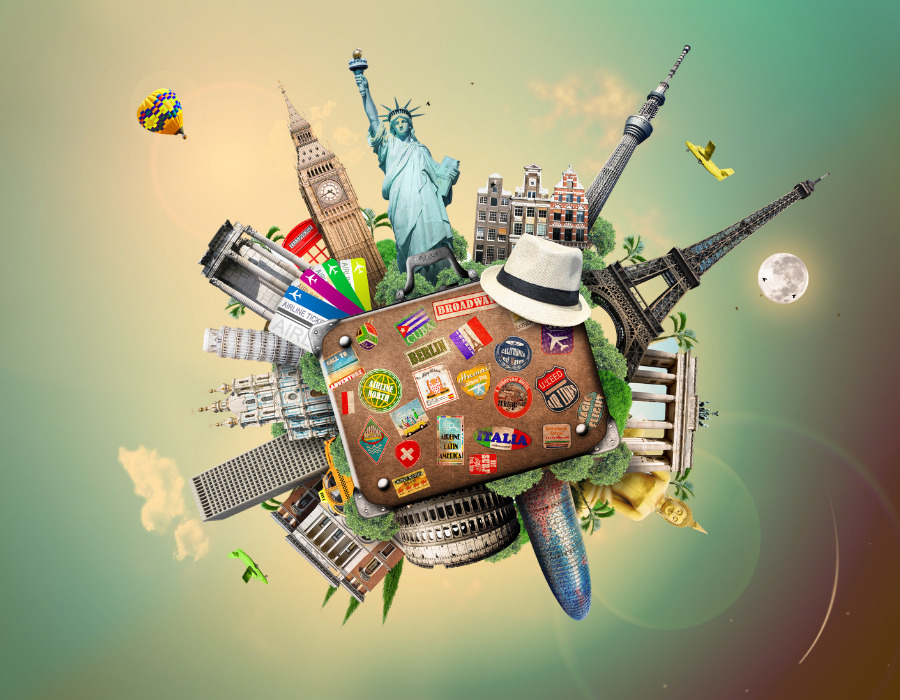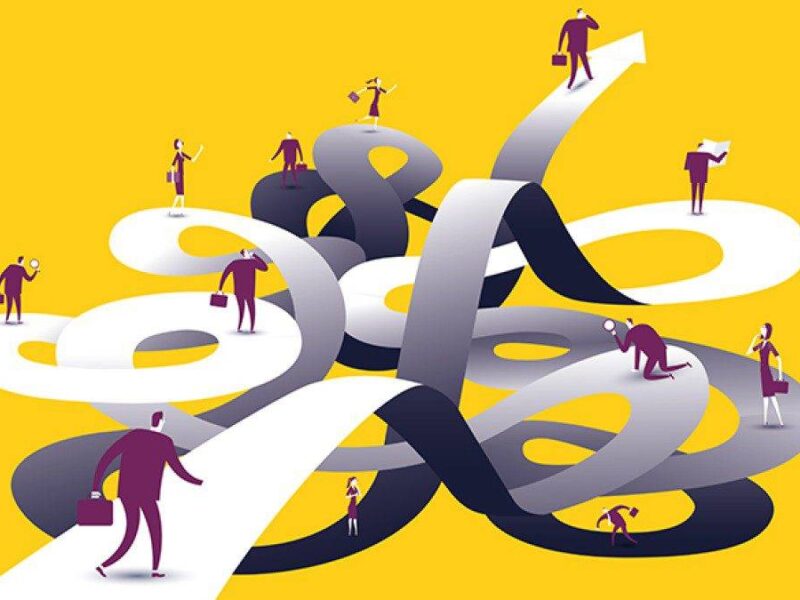As the world changes, so too do the concept of travel. Customers have never had higher expectations for flawless travel experiences, nor has it been more important to meet those expectations consistently. This is where blockchain technology is causing significant market disruption.
As the digitization of services places greater strain on the IT departments of travel companies, blockchain has emerged as a savior in the travel industry, enabling market leaders to retain their competitive edge and level the playing field for everyone else.
This article will examine how this technology is reshaping the travel industry, opening up new opportunities for enterprise expansion and customer experience.
As you travel, so must your data.
Before proceeding with the applications of this technology in the travel industry, let’s begin with a fundamental understanding of modern travel that encompasses Blockchain’s need and use cases: information.
The travel industry relies heavily on data sharing. Whether it’s booking, check-ins, passenger preferences, baggage handling, updates, or lodging, any airline’s digital network constantly exchanges data across its framework. There is no margin for error.
With this type of system come security flaws and operational difficulties, particularly as the system scales. And as the value and complexity of customer data rise, so do the sophistication of cyber threats and the methods employed by malicious actors.
Can we infuse the existing IT infrastructure of the travel company with a solution capable of eliminating these bottlenecks?
The travel industry is currently employing this technology.
How, then, can blockchain technology benefit the travel industry? It is necessary first to comprehend this innovation’s nuances to answer this question.
How blockchain technology works
A blockchain is a distributed ledger technology (DLT) consisting of a rapidly expanding list of records (also known as blocks) that are securely interconnected.
This ‘decentralized’ ledger spans a peer-to-peer network, enabling participants to conduct transactions without a central clearinghouse. In addition to its speed, blockchain employs a variety of mechanisms, including advanced cryptography, cybersecurity frameworks, mathematical behavior models, and others, to implement an unprecedented level of network security.
This complex system of recording data and conducting transactions makes it nearly impossible to hack or cheat the system, which makes the Blockchain technology ideal for enhancing the digital services offered by travel companies. This is how blockchain technology can become a weapon for forward-thinking leaders in the travel industry.
Thus, the blockchain and travel industries are converging, and now is the time to observe how innovative businesses exploit this convergence. Let’s begin with the intricacies of blockchain in travel.
How blockchain is changing the status quo of travel services
Bookings, decentralized
The current travel industry is dominated by a small number of online travel agencies (OTAs). There is a need for additional channels and partnerships to generate operational and financial benefits for the company and the customer.
The arrival of decentralized booking marketplaces This application of blockchain technology in the travel industry breaks new ground for businesses worldwide. These marketplaces give hotels and customers a great deal of power and streamline communication by eliminating intermediaries, which makes the process more cost-effective for everyone.
Blockchain technology in the hotel and travel booking example suits this application: Companies like Webjet have increased their reliance on blockchain technology to locate and eliminate real-time data issues, provide cheaper fares, and streamline vendor-user communication. Several hotels throughout the world have also adopted the concept.
We have also developed Empire App, a blockchain-powered mobile application that assists our customers in overcoming issues such as double booking, inaccurate data, data security, and cost concerns, among others.
Payments, streamlined
Similar to the Webjet example, a significant application of Blockchain technology is its capacity to make services more cost-effective for all parties involved.
Blockchain facilitates and expedites settlements between hotels, travel agents, third-party vendors, and aggregators. The distributed ledger expedites transactions while making them more secure than ever before, aiding businesses in their fight against fraud and data theft. This is a fantastic example of blockchain application in the travel industry.
Travel blockchain use case in point: Travelport utilizes artificial intelligence (AI) and blockchain technology to develop a system that accurately tracks, analyzes, and predicts corporate travel expenditures. This combination also enables the business to provide customers with more seamless payment experiences and accelerate operational processes.
Identification, simplified
Identification services are essential for any travel agency, and no room for error exists. Here, the blockchain and the travel industry intersect, and they do so effectively. Blockchain can securely store and swiftly process passenger data, allowing for lightning-fast check-ins that can reduce counter lines and improve employee and consumer experiences at scale.
Blockchain in travel and tourism use case in point: Marriott has utilized a blockchain, cryptography, and data privacy to create the Known Traveler Digital Identification program, which eliminates security vulnerabilities caused by all information residing on a single data lake and grants more control over data to all parties.
Tracking, reimagined
With a decentralized database in place, it is simpler, quicker, and more secure to share tracking data across organizations, alliances, and locations. This aids in increasing awareness, ensuring on-time delivery, and even preventing negative incidents at various tracking process levels. Applying blockchain technology to travel has created new opportunities for numerous companies, including AXA.
A relevant example of blockchain technology in the tourism industry: AXA, the industry leader in insurance, has launched Fizzy, a fully automated and highly secure platform that operates on the Ethereum network to revolutionize tracking and provide insurance against events such as flight delays.
Loyalty, incentivized
Tokenized reward programs are the key to unlocking brand loyalty in today’s chaotic marketplace, where consumer options constantly expand. In such a system, rewards can be tokenized into digital assets and exchanged across platforms, giving customers unprecedented flexibility. In addition, this enables customers to compare the true value of the offerings of various companies.
Travel blockchain use case in point: Singapore Airlines has implemented a loyalty program that converts travel miles into payment units using Blockchain technology. These units can be redeemed for various goods and services at merchant partners of the airline. Check out this article to learn more about blockchain applications in the aviation industry: How blockchain can save airlines millions.
By incorporating blockchain technology in the travel industry and empowering its IT infrastructure, the avant-garde has unlocked new revenue streams and customer success. Now is the time for the rest of the industry to catch up to this new trend and ride it to brand supremacy.
Blockchain in the travel industry to work
Blockchain’s numerous advantages, such as decentralization, immutability, and enhanced security, can herald a new era for travel agencies.
We provide Blockchain dApp Development Services that are intended to assist you in gaining a competitive advantage in decentralized solutions. Whether you’re looking to create smart contracts, deal with cryptocurrencies, build new services, or power your IT ecosystem with Ethereum, our team of experts has you covered, just as they do for some of the market’s most recognizable brands. In the eyes of our esteemed clients, partners, and associates, this makes us the best blockchain app development company in the world.



